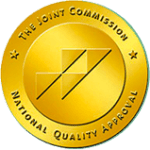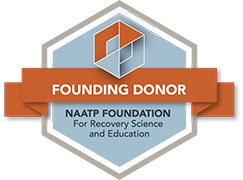8 Tips for Living with Someone in Addiction Recovery
Finishing inpatient treatment for addiction is a great beginning to recovery. It creates a solid foundation to build on. If you have a loved one who struggles with addiction, you will play a role in building on that foundation if you want your loved one to succeed. Recovery is challenging for both the person in recovery and that person’s family. However, those challenges are much more manageable with the support of friends and loved ones. If you live with someone recovering from addiction, here are some ways you can help.
Keep alcohol and other substances out of the home.
This is perhaps the most basic form of support. All drugs and alcohol should be out of the house by the time your loved one comes home from treatment. Early recovery, typically the first year, is one of the most vulnerable and sensitive times for relapse with any kind of substance, regardless of substance of choice. Even if your loved one didn’t have a problem with alcohol, alcohol is a powerful trigger because it offers old promises of reprieve.
Participate in family therapy.
Addiction is often called a family disease. A dysfunctional childhood home often leads to addiction later in life. A dysfunctional family dynamic might include abuse and neglect, or it may be something more like a chaotic environment caused by a parent’s own substance use. As an adult, people often find themselves in problematic relationships patterned in reflection of their relationship with their parents, particularly any dysfunctional parts. Defining dysfunctional dynamics and working through the current problems in family relationships is crucial for a successful recovery. Family therapy is a chance to learn to communicate better, set boundaries, and respect one another. This not only improves your loved one’s chances of recovery, but it improves your relationship and makes everyone happier.
Take care of yourself.
You naturally want to take care of your loved one, especially in the early days after treatment, but it’s important to take care of yourself first. Make sure your basic needs are met. Get enough sleep, eat healthy food, and get a bit of exercise. Recovery is a long process and if you defer taking care of yourself it will be much harder. You can’t support your loved one if you’re not healthy and functional.
It may also be a good idea to see a therapist. While family therapy is good for you and your loved one, you may have your own issues to work out. It’s especially common to have some anxiety related to your loved one’s recovery. If you can learn to be happier and think more clearly it will also benefit your loved one.
Consider joining a support group.
Another way to take care of yourself is to join a group for people with loved ones in recovery. It could be group therapy or it could be a mutual aid group like Nar-Anon or Al-Anon. These are groups of people who have all been through what you’re going through. Many of their family members will still be in active addiction and many will be in active recovery. Participating in a group will give you an idea of what to expect. It can be a source of support in difficult times and you can support others who are having a hard time. This kind of social connection has been shown to reduce stress and increase emotional resilience.
Watch out for signs of relapse.
A slip-up or relapse is always a possibility for a loved one in recovery. Though relapse is a possibility, it is not necessarily a probability. However, relapse can give strong warning signals well ahead of taking a drink or a drug. Typically, the first phase of relapse is emotional. Your loved one may seem unusually irritable, depressed, pessimistic, or cynical. They may feel like recovery is not going as well as they had hoped or that it’s disappointing and not what they expected. They also may start reminiscing about the old days of active addiction, remembering the good times but forgetting all the bad times and suffering. Finally, finally may start hanging around with people they used to use drugs and alcohol with, or go to bars even though they say they don’t intend to drink. A full relapse will be accompanied by signs that are probably familiar–secrecy, evasiveness, unexplained absences, and signs of substance use. It’s best to catch a relapse as early as possible, ideally at the emotional stage and remind your loved one it is normal to crave the old lifestyle of addiction, but more important to work toward a future of sobriety.
Learn as much as you can about addiction.
You have probably learned quite a bit about addiction from watching your loved one’s addiction and recovery. You probably learned much more by participating in family therapy. However, addiction is complex and science learns new things about healing addiction every day. There are innumerable books, articles, and resources available to educate you on every facet of addiction, recovery, treatment, and mental health.
Established in 1939, High Watch is the world’s first 12-Step treatment center. Every individual who walks through our doors joins a definitive culture of compassion, dignity, and respect from a genuinely caring staff dedicated to seeing the disease of addiction find remission. Providing proven therapeutic approaches and comprehensive 12-Step education, patients leave High Watch with the confidence to maintain abstinence and live a healthy, happy, sober life. Start your journey today by calling 860.927.3772.








